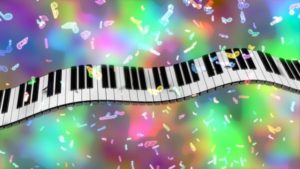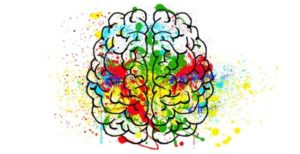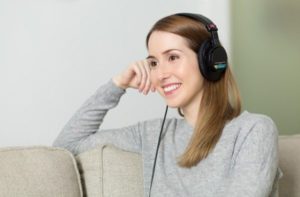ピアノを始めるメリットや弾くメリットはネット上にたくさんまとめてあります。
しかしデメリットをまとめているサイトはなかなかありません。
「ピアノはいいですよ!」「絶対始めたほうがいいですよ!」とゴリ押しされても「ホントにそうなのかな?」となりますよね。
そこで今回はピアノの代表的なデメリットを3つ紹介します。
ピアノを始めるデメリット

広いスペースが必要

まずはなんといってもスペースです。
ピアノそのものも大きい上、十分な椅子のスペースまで必要になります。
※グランドピアノ・アップライトピアノ・電子ピアノのそれぞれの大きさ
| 幅 | 奥行き | 奥行き(椅子あり) | 高さ | |
| グランドピアノ | 150cm | 150cm~200cm | 210cm~260cm | 100cm |
| アップライトピアノ | 150cm | 65cm | 135cm | 130cm |
| 電子ピアノ | 140cm | 50cm | 110cm | 90cm |
椅子のスペースまで入れると電子ピアノで0.9畳分、アップライトピアノで1.2畳分、グランドピアノだと最大で2.4畳分以上の面積が必要になります。
もう少し分かりやすく例えると電子ピアノでセミシングルサイズのベッド、アップライトピアノでシングルサイズのベッド、グランドピアノだとキングサイズのベッドが置けるほどの面積を占めるわけです。
貴重なお部屋のスペースがベッド1台分潰れるって、よほど大きな家にすまれていない限り大きな痛手だと思います。
更に悪いことに、ベッドのような家具のように、簡単に動かすことができません。
時々「キャスター付きだから移動もラクラク」と謳っているピアノがありますが、全然ラクラクではありません。
一度体験されるとわかりますが、ピアノは非常に重いです。
そんな重いものを力いっぱい動かそうとすると、壁や他の家具類を壊してしまいます。
電子ピアノは3つの中では小さく軽いですが、代わりに電源コードが必要になります。コンセントから近い場所、もしくはコードを伸ばしてもじゃまにならない場所を確保する必要があるのです。もちろん移動の際には電源コードに最新の注意が必要になります。
以上のことからも、デメリットの第1番に挙げられるのは固定された大きなスペースが必要だということが言えるでしょう。
お金がかかる

次に来るのはお金です。
なんといっても初期投資が大きいです。
グランドピアノやアップライトピアノは言うまでもなく高く(最低でも50万円)、安い電子ピアノでも5~10万円ほどするものがほとんどです。
「飽きた」や「やっぱり向いていなかった」でやめるには済まされない金額が必要となり、とても手軽に始められるものではありません。
また維持費も必要になります。
ピアノには調律が必要です。(電子ピアノは除く)
ピアノの調律は「ピアノ調律師」という職業があるほど、ギターのように素人からでも簡単に始められるものではありません。
専用の工具や技術がないとかえってピアノを痛めてしまいます。
こちらは最低でも年に1回は必要とされ、安くても金額は1回で1~2万円前後必要になります。
引っ越しや場所を移動した際には特に音が狂いやすく、そのたびに調律が必要になるでしょう。
一度買えばずっとそのまま使えるわけではないのです。
コストの面も、ピアノを始めるデメリットになるのです。
騒音問題

他の楽器と同じように、ピアノも騒音問題には注意が必要です。
ピアノの音は、多少の防音設備を施した部屋でも意外と周りの家(部屋)にかなり響きます。いつも発表会のように完成された曲をお昼に演奏するわけではありません。練習をするときにも周りに意外と聞こえてしまいます。
電子ピアノは確かにイヤホンを使って周りに音を聞こえなくしたり、音量を小さくすることができますが、やはりせっかく練習した曲は元の音の大きさで楽しみたいものです。
そんなときに近隣からクレームが入れば、気持ちも一気に下がりますし、ピアノが弾けなくなってしまいます。
周りが田んぼに囲まれた一軒家であれば気にすることはありませんが、多くの人はマンションの一室や集合住宅など、周りに気を使う必要があるところに住まれているのではないかと思います。
音の大きさに常に気を配りながら練習をしなければいけないのはデメリットですね。
以上がピアノを始める代表的なデメリットとなります。
これだけ見ると「やっぱり別の趣味を探してみよう」と思われる方も多いかと思います。
ピアノ好きの私としては、やっぱりメリットもご紹介したいので、こちらも3つにまとめてみました。
ピアノを始めるメリット

・脳のアンチエイジングになる

子供向けであれば「脳の発達に役に立つ」と言いたいところですが、脳がある程度発達している方にとってはこちらのアンチエイジングの言い方が適切かと思います。
ピアノの演奏は目、耳、手、足、そして脳を同時に動かします。
五感(視覚、聴覚、触覚、味覚、嗅覚)のうち嗅覚以外をフルに使い、刺激を与えることで、脳がトレーニングされます。
また脳と一概に言っても、記憶力・集中力・判断力・推理(推測)力・想像力など様々な動きが行われます。
また元吉ひろみ氏の「高齢者のピアノ学習が心身の健康状態に 与える効果に関する研究」という博士論文によれば
・高齢者を対象とした健康ピアノ講座により手指運動機能の向上あるいは低下予防に効果がある可能性が示唆された。
・前頭前野の血流量変化量から、 ピアノを弾くことによる脳賦活効果が示された。その賦活は、歌唱と比較して有意に高かった。
との研究結果が出されています。(賦活とは「活性化される」こと)
ピアノの演奏は、脳を健康的に維持するために効果があり、認知症をはじめとした脳の病気を予防する一つの手段かもしれません。
・末長い趣味にできる
これは間違いなく大きなメリットです。
サッカーやテニスなどのハードなスポーツは、年齢とともに体力やパワーが全盛期のときに比べて急激に衰えてきます。極端な話、技術が身についていない小学生と試合をしても負けてしまうことが多いでしょう。
もちろんピアノも、若いときのように高速の速弾きなどはできなくなるかもしれませんが、それでも日々の練習をしていくことで、非常に高いレベルを維持したまま演奏することができます。
ピアノは年老いても永く続けることができる趣味の一つと言えるでしょう。
・音楽が楽しくなる

学校の音楽の授業はもちろんですが、世の中にあふれる「音楽」をもっと楽しめるようになります。
クラシックからJ-POP、洋楽などすべてのジャンルの音楽に共通します。
音階をより詳しく知ることで、その曲がどのような表現で作曲されているかがよりイメージしやすくなり、曲に対して感情移入しやすくなります。
クラシックを聞いて涙することも増えてくるでしょう。
また、イヤートレーニングをしていくことで、耳コピが容易になってきます。
好きな曲を耳コピして、自分でピアノ演奏をしたらかっこいいですね。
以上がピアノを始める3つのメリットです。
ピアノを始めようか悩んでいる人は是非参考にしてみてください。

コメントを残す